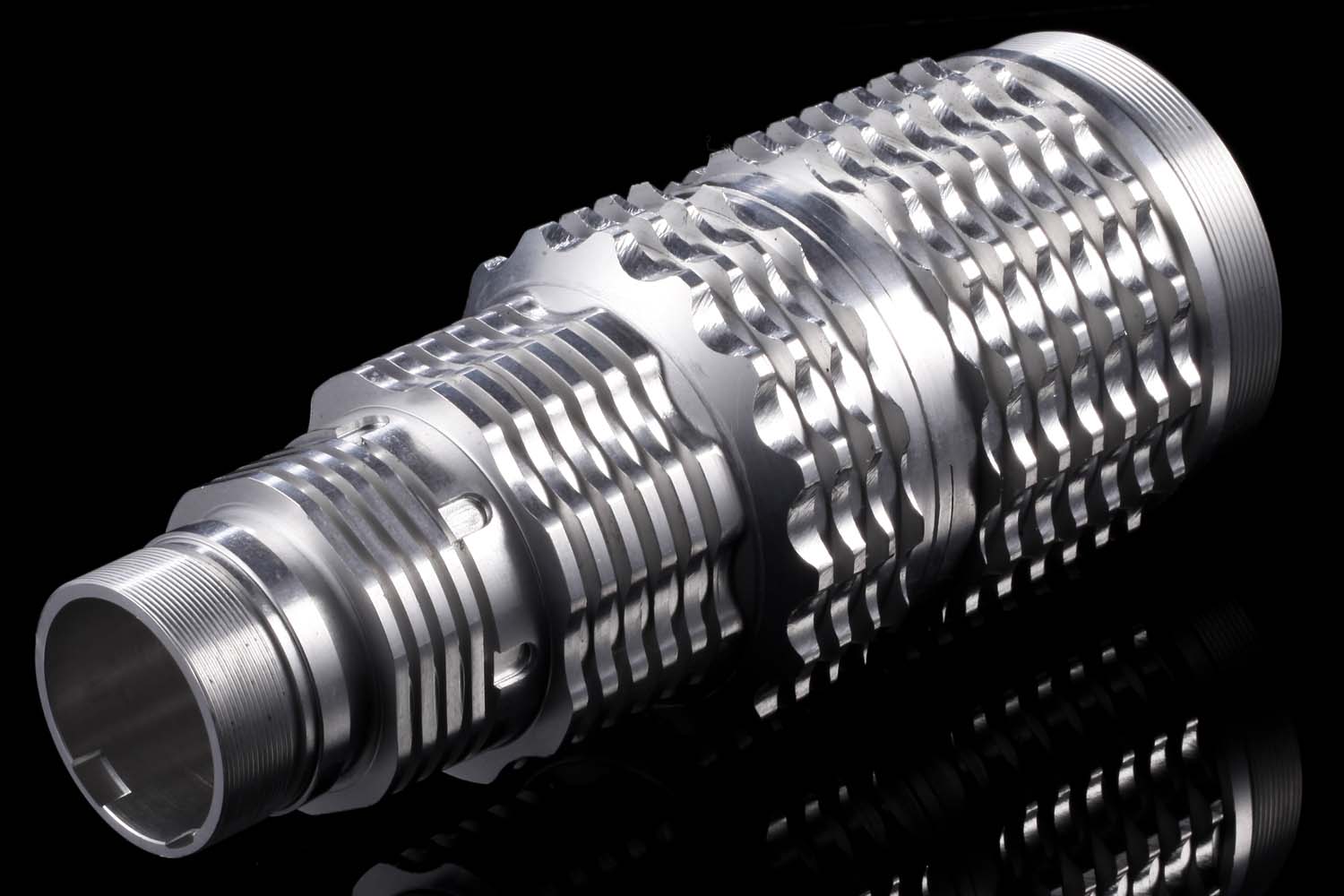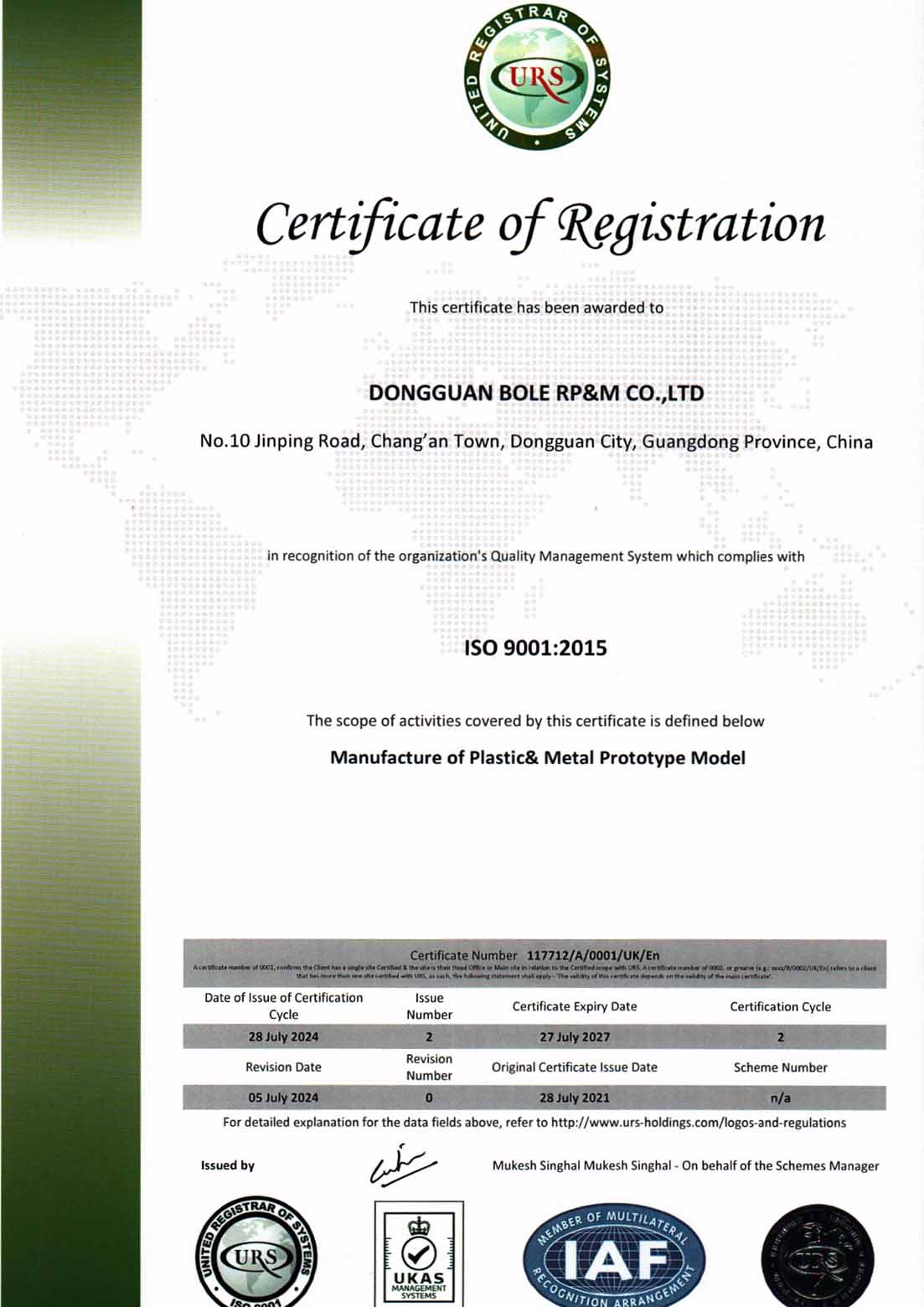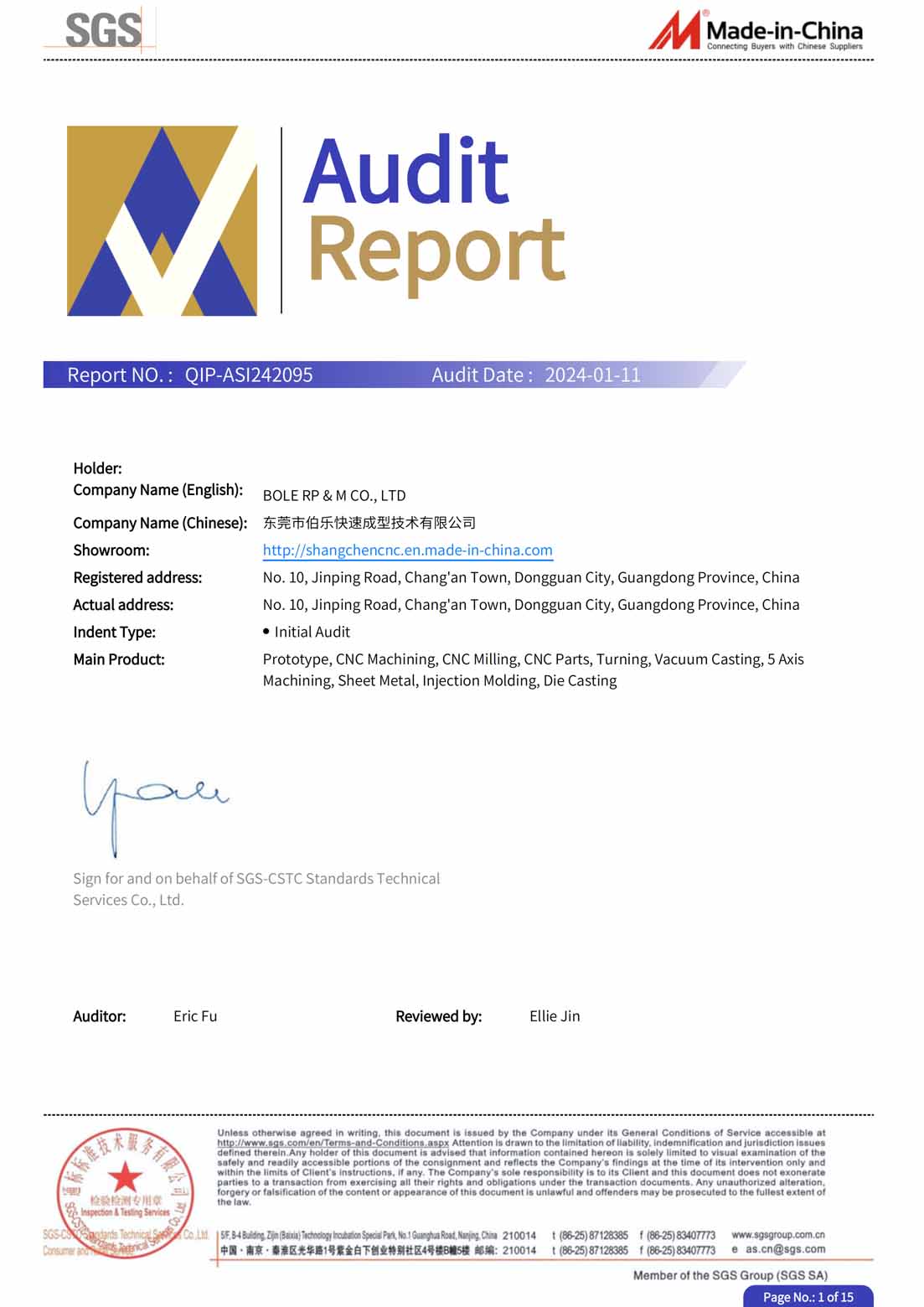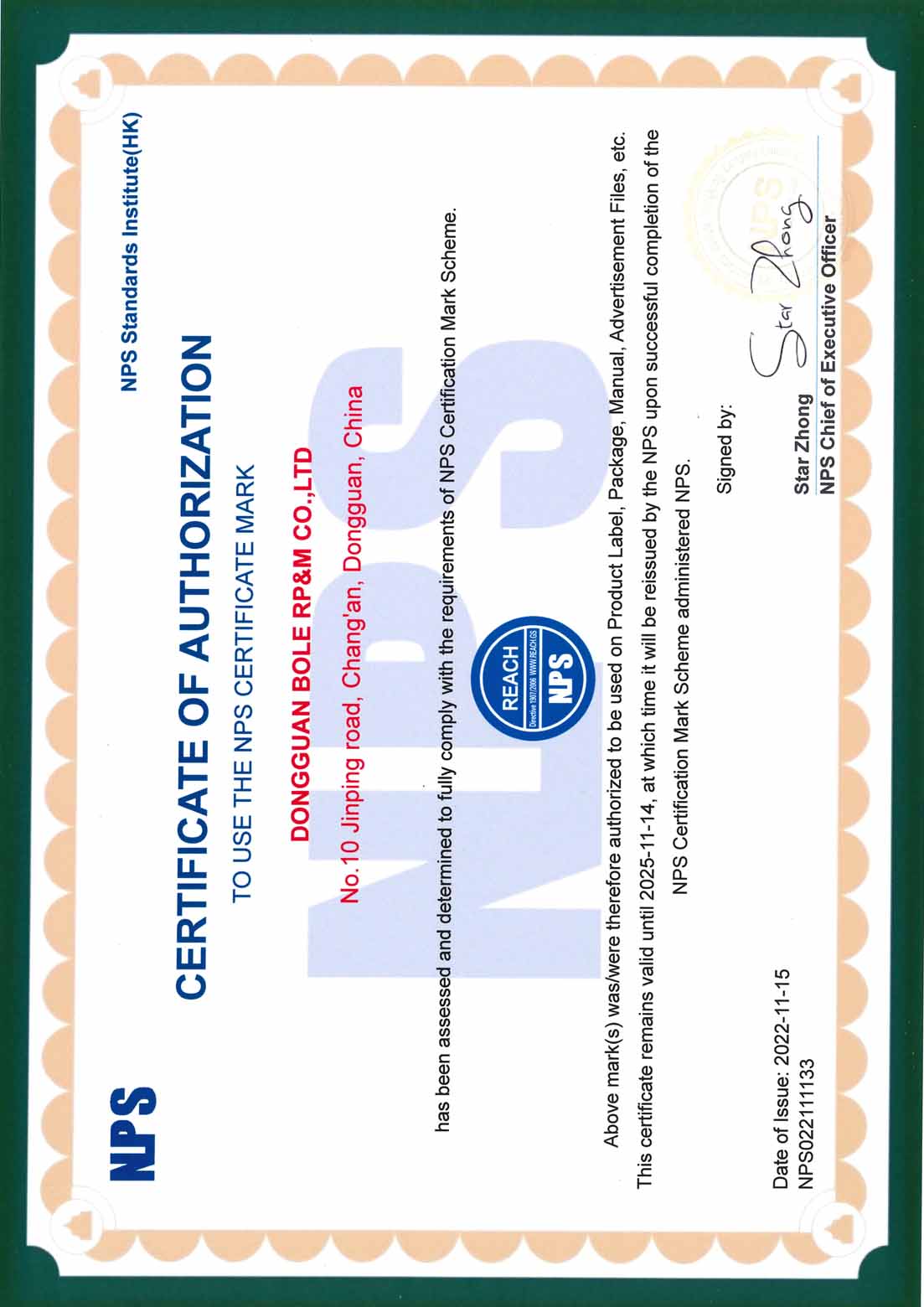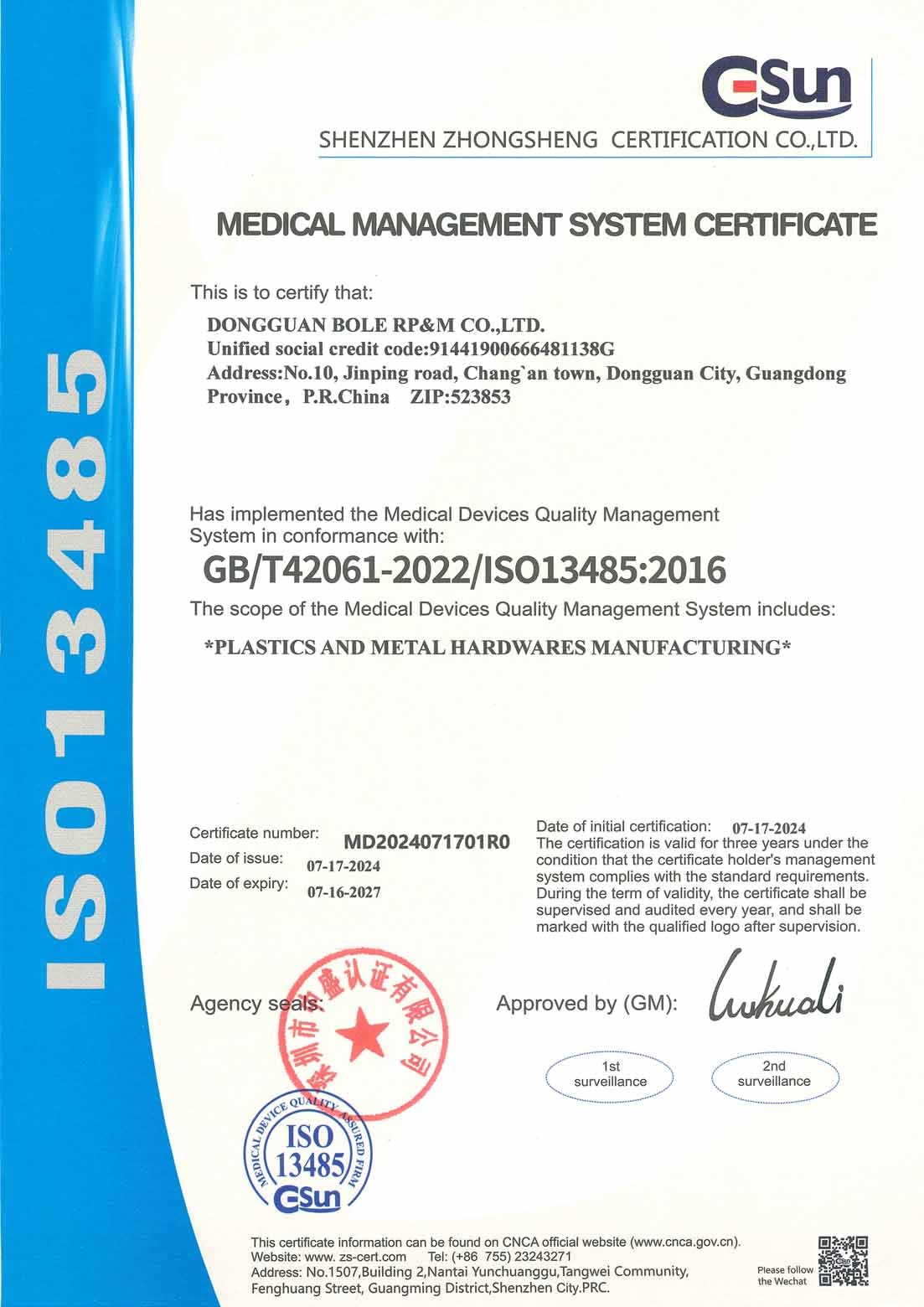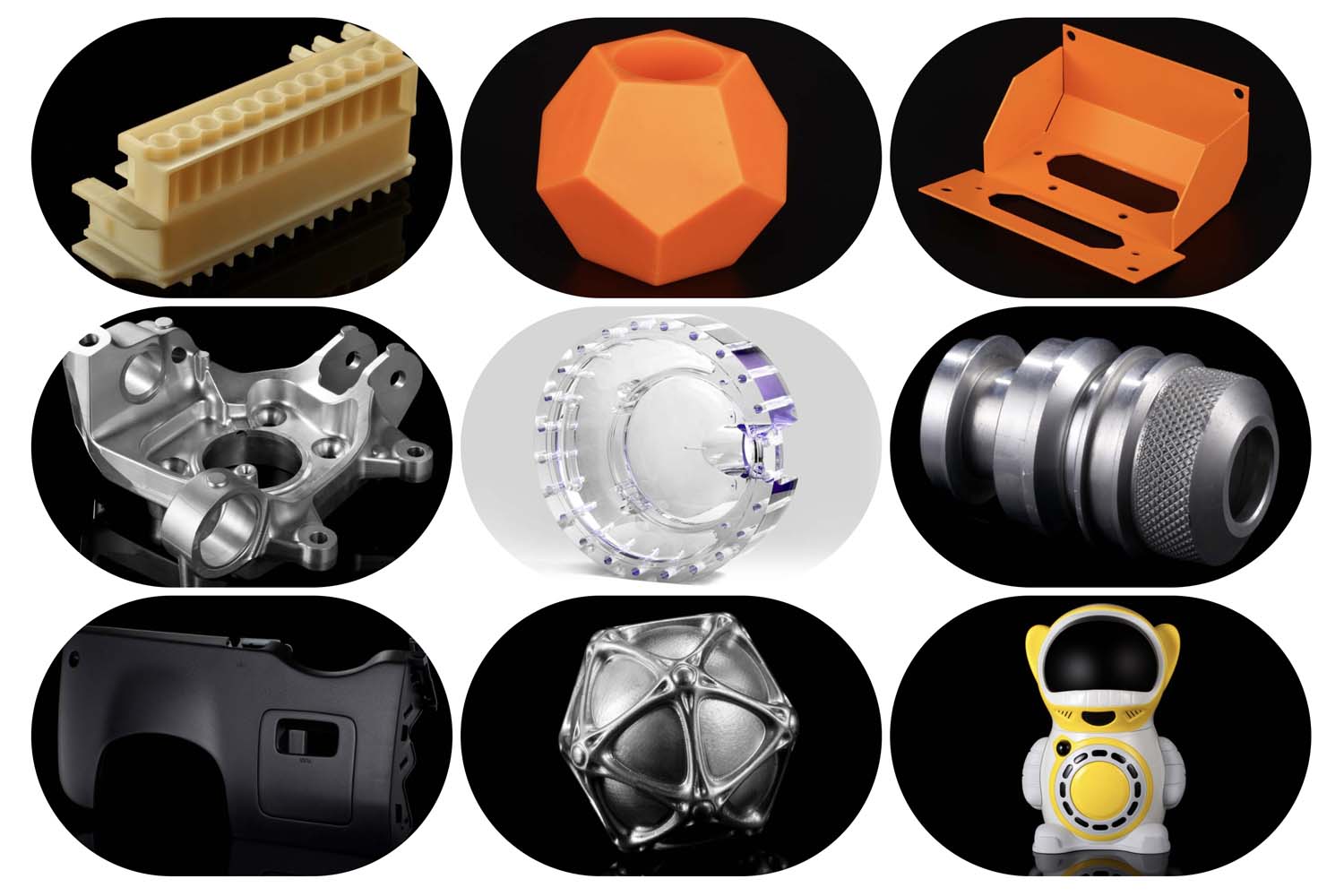IATF 16949 优质工厂深受全球汽车品牌的青睐。不管你承认与否,几乎所有合作伙伴都需要一家通过 IATF 16949 认证的汽车零部件制造商。
IATF 16949 是专门针对汽车行业的质量管理标准。它由国际汽车工作组(IATF)制定,旨在提高汽车供应链的质量和效率。
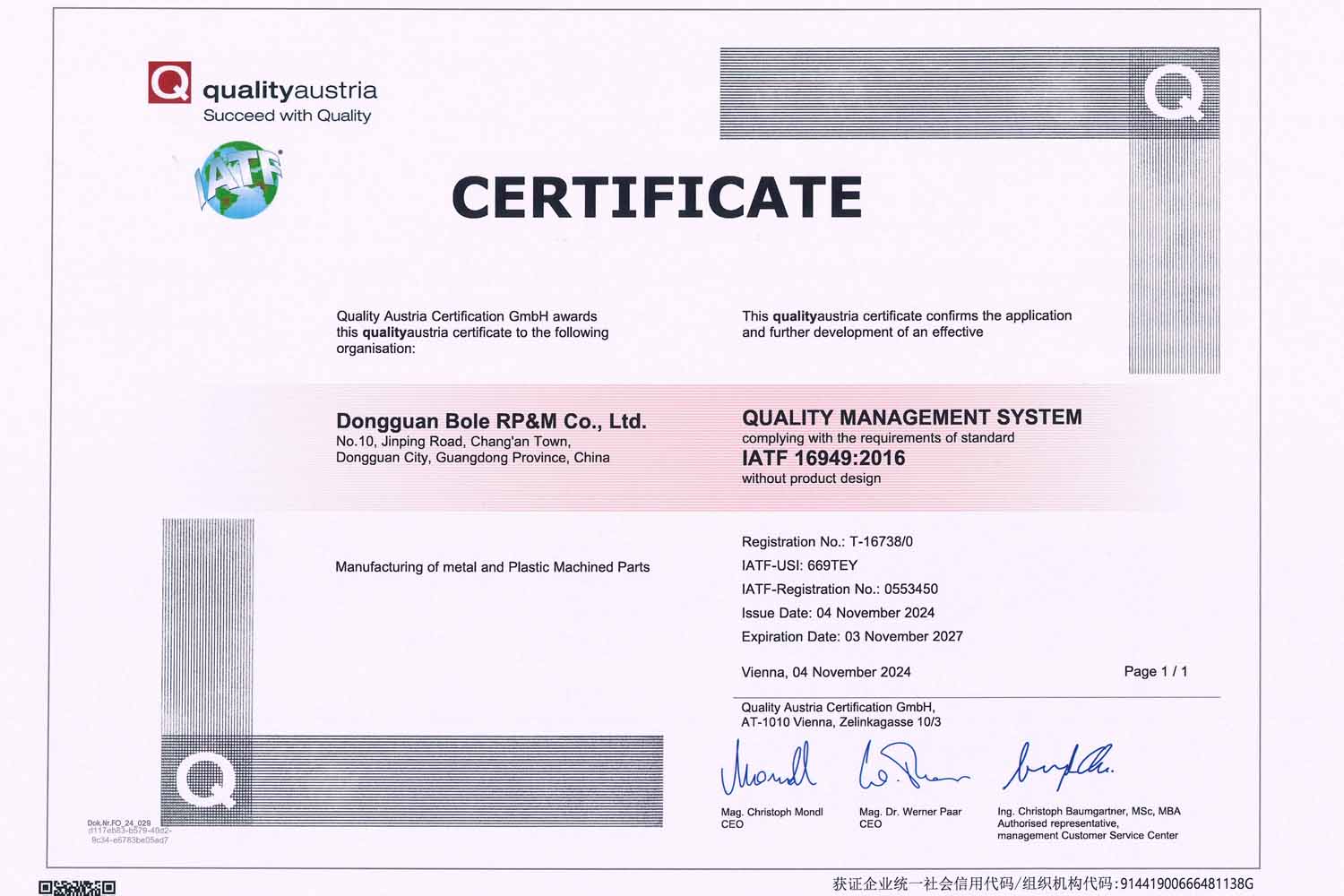
主要品牌符合 IATF 16949 标准。获得认证的汽车零部件制造商从未如此重要!
汽车行业的总体趋势
转向电动汽车: 随着汽车行业向电动汽车转型,许多传统和新兴制造商都在关注 IATF 16949 等质量管理体系,以确保其产品符合不断发展的标准和客户期望。
关注数字化转型:企业正越来越多地将数字工具和数据分析整合到质量管理流程中,从而提高实时监控和改进质量的能力。
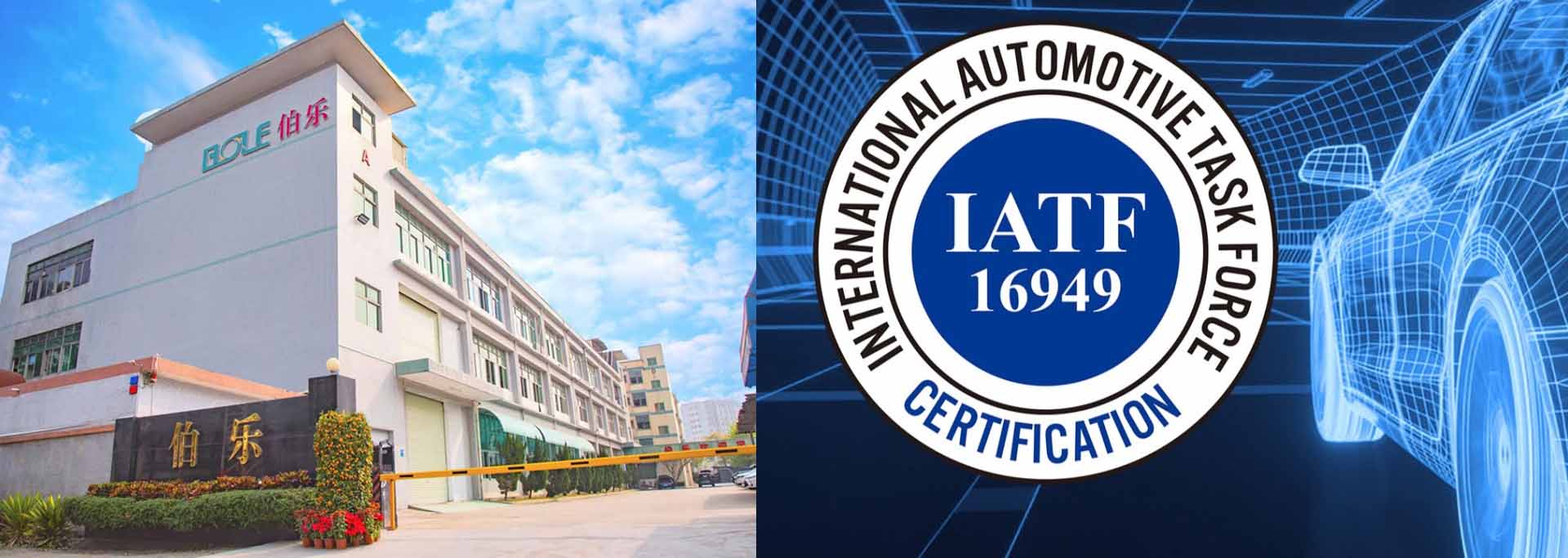
IATF 16949 证书 (PDF) 可在下方下载:
Bole RP&M(伯乐解决方案) 是一家通过认证的汽车零部件制造商。IATF 16949 认证为汽车零部件制造商和装配企业带来了多项重大影响和益处:
强化质量管理
一致性:该标准促进生产过程质量的一致性,确保产品符合既定规格和客户期望。
减少缺陷:通过注重预防措施和持续改进,制造商可以减少缺陷,提高整体产品质量。
提高客户满意度
会议要求:认证表明了对满足客户和监管要求的承诺,可提高客户的信任度和满意度。
声誉:经过认证的公司通常被认为更可靠,这可以带来更多的商业机会。
竞争优势
市场差异化:认证可以使制造商在竞争激烈的市场中脱颖而出,从而对潜在客户更具吸引力。
进入新市场:许多汽车原始设备制造商(OEM)都要求其供应商获得 IATF 16949 认证,因此认证可以打开新的商机之门。
提高运行效率
简化流程:该标准鼓励优化流程,从而减少浪费,提高效率。
降低成本:改进流程可节省生产和运营成本。
风险管理
识别风险:该标准强调风险评估和管理,帮助制造商在问题出现之前发现潜在问题。
危机管理:结构化的质量管理方法可帮助企业有效应对危机或产品召回。
供应商管理
加强关系:IATF 16949 促进有效的供应商管理,加强整个供应链的关系与合作。
质量保证:制造商可以确保其供应商符合相同的质量标准,从而提高整体产品质量。当然,IATF 16949 优质工厂对供应商的要求也更高!
员工参与和培训
员工参与:该标准鼓励员工参与质量管理,从而在组织内部形成质量文化。
培训与发展:通常需要对员工进行持续培训,提高他们的技能和知识。
监管合规
遵守标准:认证有助于确保符合各种监管要求,降低法律问题的风险。
总之,IATF 16949 认证对汽车零部件制造商和装配企业至关重要,因为它能提高质量、改善运营效率、促进客户满意度,并提供汽车行业的竞争优势。
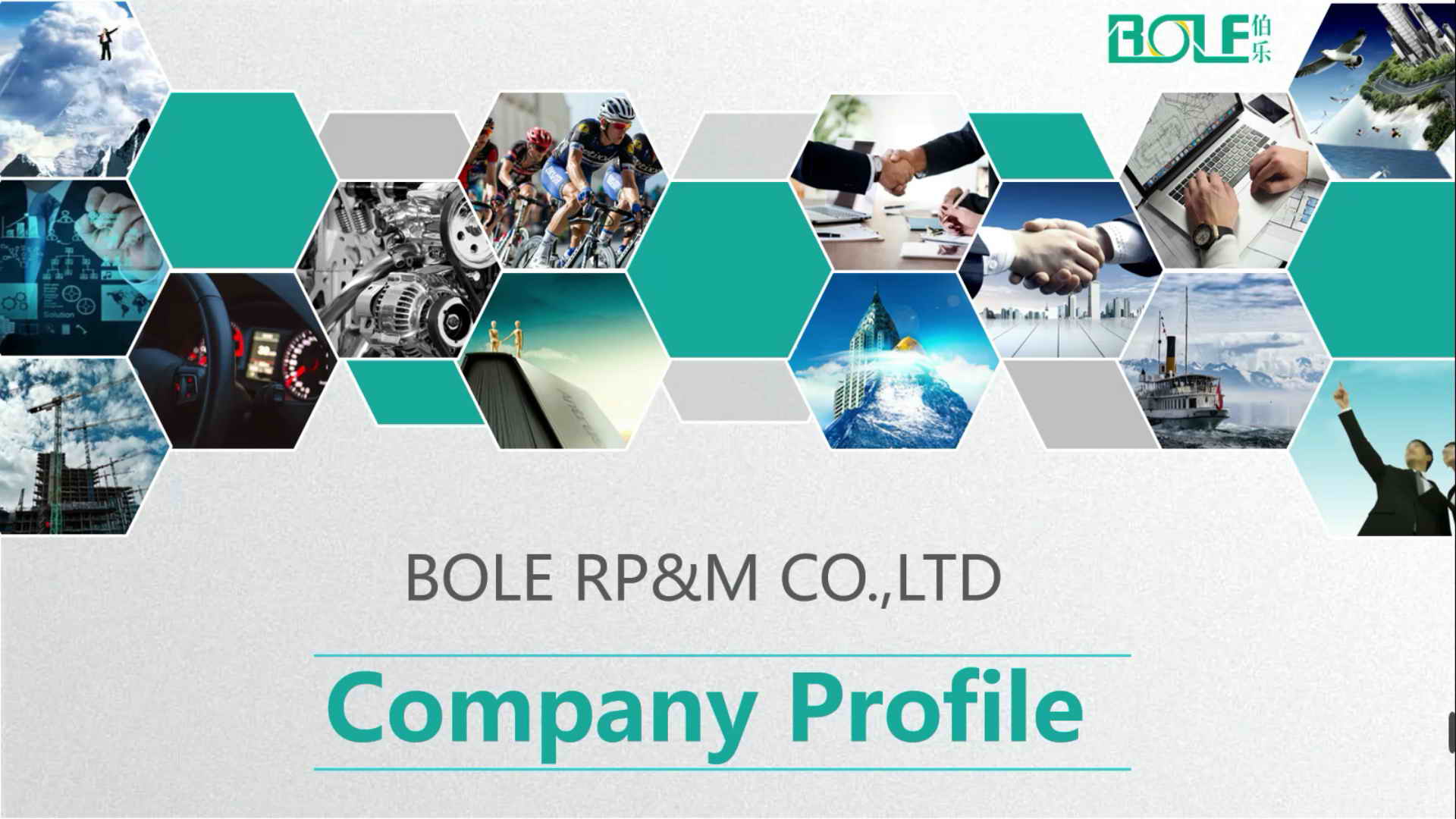
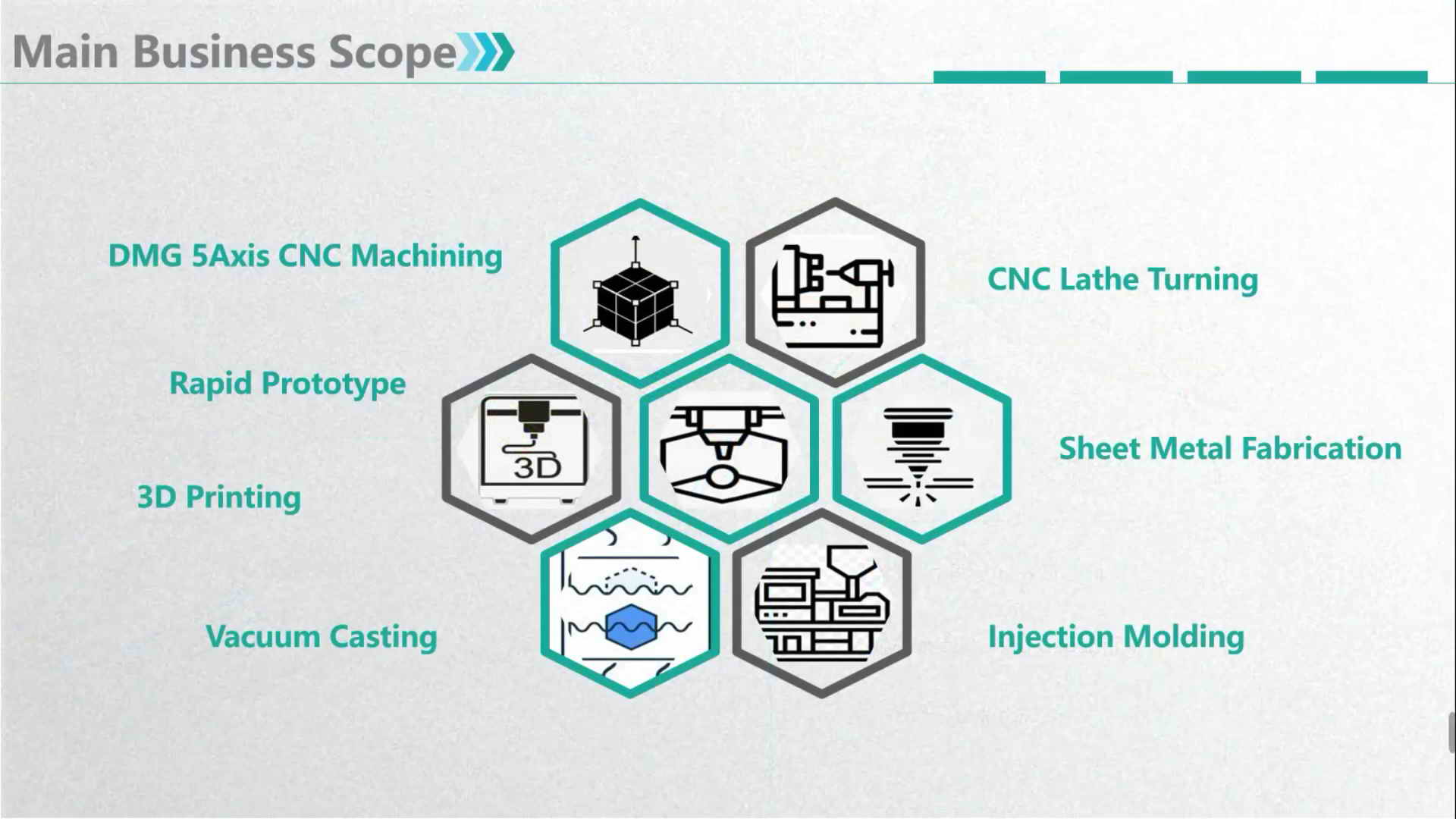
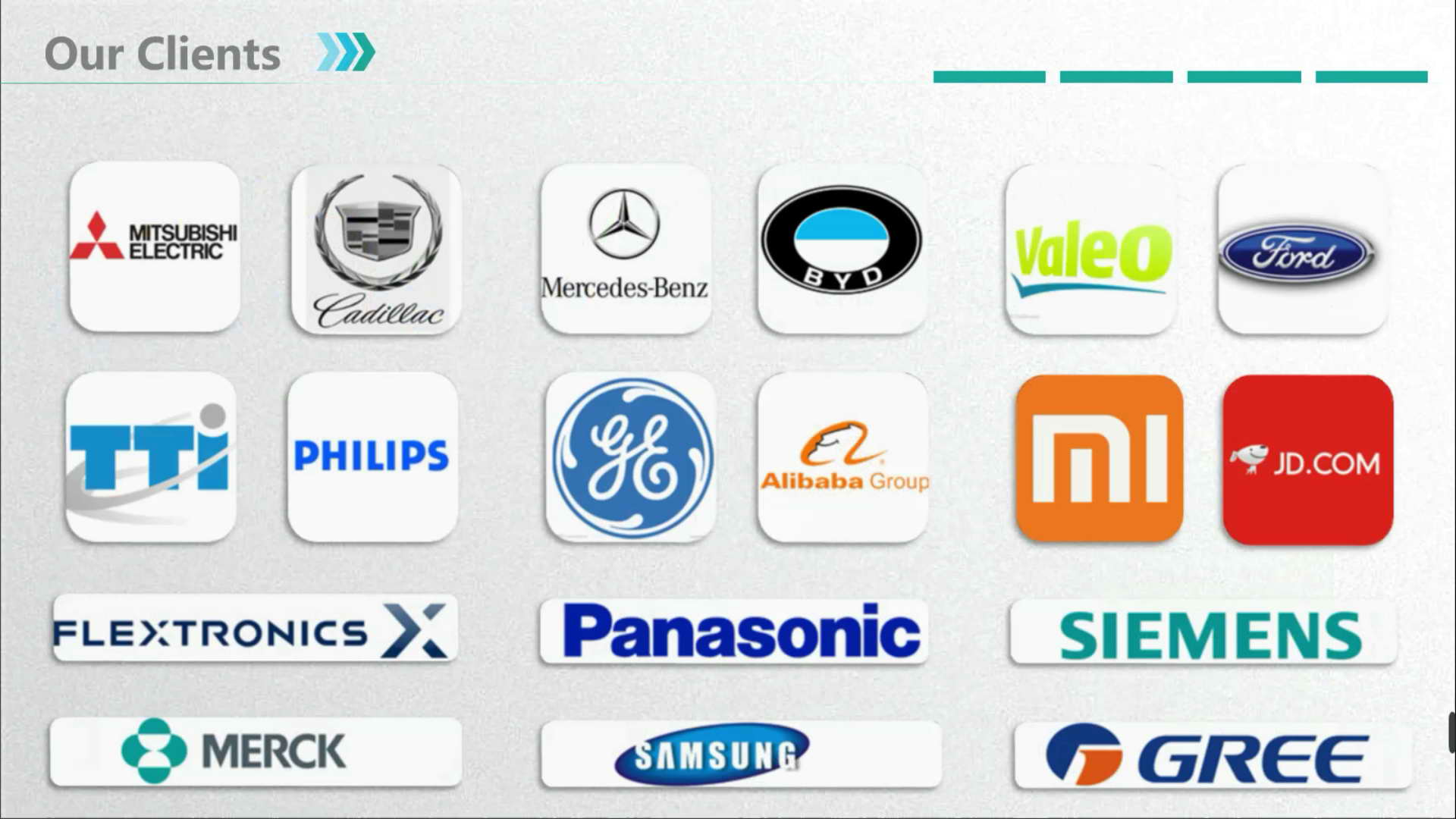
关于 IATF 16949 的要点
注重持续改进:
该标准强调必须不断改进流程、产品和服务。
定义:
持续改进是 IATF 16949 的核心原则,要求组织不断改进流程、产品和服务。
措施和行动:
实施改善实践:鼓励通过定期的改善活动(Kaizen)建立持续改进的文化,让团队发现效率低下的问题并提出改进建议。
质量审计:进行内部审计,以评估是否符合标准,并确定需要改进的地方。利用审计结果制定行动计划。
培训与发展:投资于员工培训计划,以提高与质量管理和流程改进相关的技能和知识。
客户满意度:
其目的是通过确保产品符合客户和监管要求来提高客户满意度。
定义:
IATF 16949 强调满足客户和监管要求的重要性,以提高整体满意度。
措施和行动:
客户反馈机制:建立收集和分析客户反馈的渠道,以确定产品和服务需要改进的地方。
产品测试和验证:实施严格的测试协议,确保产品在交付前达到或超过客户的规格要求。
定期交流:就客户的需求、期望以及产品设计或规格的任何变更与客户保持畅通的沟通渠道。
风险管理:
IATF 16949 非常重视风险管理和不符合项的预防。
定义:
该标准采用了积极主动的风险管理方法,重点是识别和减少潜在的不符合项。
措施和行动:
风险评估工具:利用故障模式和影响分析(FMEA)等工具,识别流程和产品中的潜在风险。
预防行动:根据确定的风险制定和实施预防行动计划,以减轻风险对质量和绩效的影响。
危机管理计划:制定并定期更新危机管理计划,以应对供应链或生产流程可能出现的中断。
与其他标准的整合:
其设计目的是与 ISO 9001 等其他管理系统标准相结合。
定义:
IATF 16949 旨在与 ISO 9001 等其他管理体系标准无缝集成,以创建一个具有凝聚力的质量管理框架。
措施和行动:
统一管理系统:制定符合 IATF 16949 和其他相关标准要求的综合管理系统,减少重复,提高效率。
交叉训练:对员工进行培训,使其了解不同标准之间的相互联系,从而对质量管理有一个全面的认识。
文件管理:简化文件编制流程,确保所有质量管理文件都易于获取并及时更新。
供应链管理:
该标准重视对供应链的有效管理,以确保整个供应链的质量。
定义:
有效的供应链管理对于确保整个生产过程的质量和满足客户期望至关重要。
措施和行动:
供应商评估和选择:根据供应商达到 IATF 16949 标准的能力,制定评估和选择供应商的标准。定期进行评估,确保持续符合标准。
供应商发展计划:与供应商合作,改进其质量管理体系,并根据需要提供培训和资源。
性能监测:实施关键绩效指标(KPI),监测供应商的绩效和质量,以便根据数据做出决策和改进。
如果您正在寻找来自中国的经认证的汽车零部件制造商或 IATF 16949 质量供应商,请 联系博乐解决方案 以获得最佳支持!

